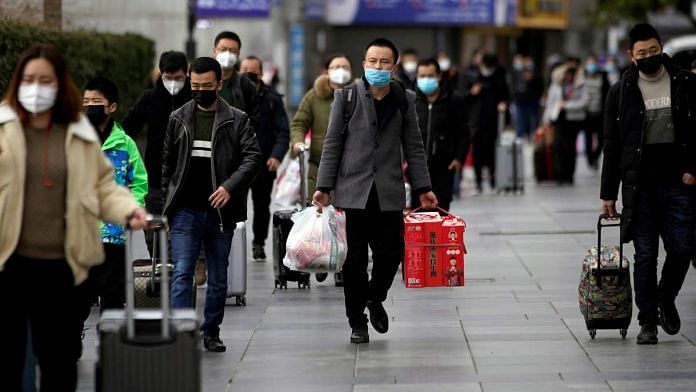New Delhi: Scientists across the globe have been racing against time to find a cure for COVID-19, but the re-emergence of a “SARS-like virus” was predicted by researchers at the Hong Kong University nearly 13 years ago.
A study, titled ‘Severe Acute Respiratory Syndrome Coronavirus as an Agent of Emerging and Re-emerging Infection’, was published in October 2007 by the American Society for Microbiology.
It warned that the presence of a “large reservoir” of SARS-CoV-like viruses in horseshoe bats, along with the culture of eating “exotic mammals” in southern China, was like a “time bomb”.
The study also talked about the “need for preparedness”. The possibility of a re-emergence of SARS and other novel viruses from animals and laboratories must not be “ignored”.
The research was authored by Vincent C.C. Cheng, Susanna K.P. Lau, Patrick C.Y. Woo and Kwok Yung Yuen from the Department of Microbiology, Research Centre of Infection and Immunology at The University of Hong Kong in China.
‘Horseshoe bats natural reservoir for SARS-CoV-like virus’
The coronavirus outbreak, which has claimed over 14,700 lives worldwide, is being compared to the 2003 SARS outbreak in Hong Kong that had killed 774 and infected over 8,000 people.
The source of both SARS and the coronavirus outbreak are believed to be a “wet market” in Wuhan, which sells both dead and live animals. Even though the animal source of coronavirus hasn’t yet been identified, the original host is believed to be bats.
The findings of the 2007 research paper asserted that “horseshoe bats are the natural reservoir for SARS-CoV-like virus and that civets are the amplification host which highlight the importance of wildlife and biosecurity in farms and wet markets”.
It had warned that wet markets can serve as the “source and amplification centers for emerging infections”.
The study also said that economic growth in southern China had led to an increase in demand for animal proteins (including exotic animal foods such as civet). Large numbers of these mammals are caged and the lack of biosecurity measures in wet markets allowed quick transmission of deadly viruses from animals to humans.
Moreover, the paper argued that “small re-emergence” of SARS in 2004 suggested the virus can return if conditions are suitable for its “introduction, mutation, amplification, and transmission”.
Also read: Audio message from drones — how J&K is asking people to stay home during COVID-19 lockdown



